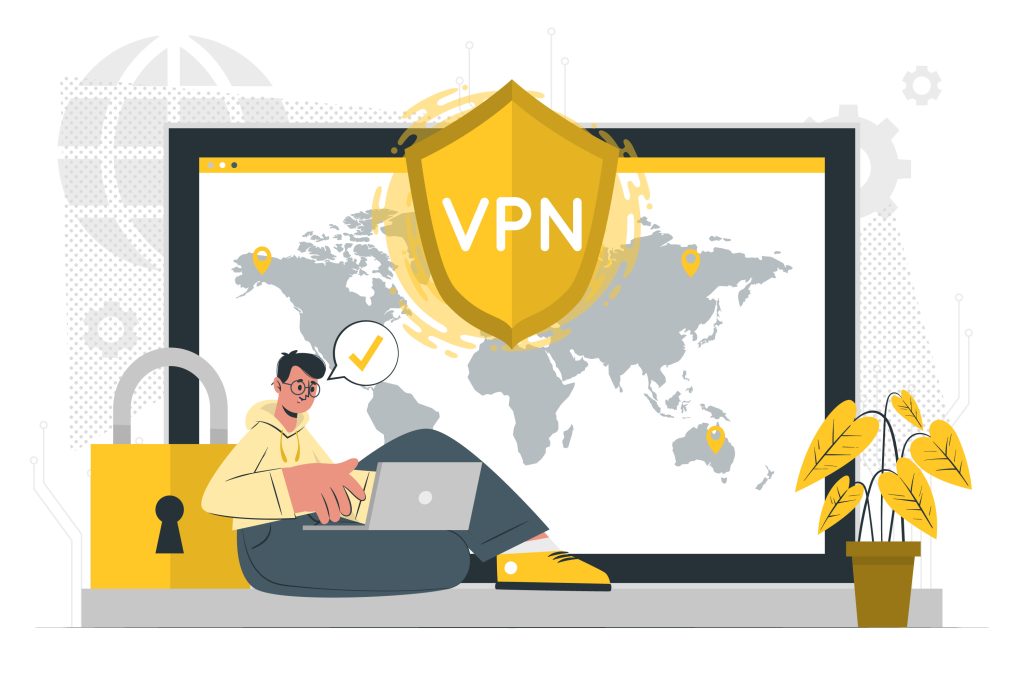You’ve probably used a VPN to watch shows that aren’t available in your country. Or maybe to access restricted websites when abroad. Or perhaps to mask your IP when you’re working on public WiFi. These are the most common uses for a VPN service—and they are undeniably valuable. But if that’s where your usage begins and ends, you’re missing out on a few unexpected, underhyped, and frankly delightful potential VPN uses.
Online Gaming
If you know, you know. Being disconnected during a great boss run can be deeply frustrating and unfair to your team if you’re playing co-op. Occasionally, disconnection is a result of a game server error. Other times, it’s your ISP throttling your activity. It could be related to monthly usage, based on which application you’re using (i.e., Steam), or time-based during peak hours. It’s annoying either way.
Switching on your VPN can help. When your traffic is masked, your ISP has a harder time seeing exactly what you’re doing. It doesn’t know you’re gaming and thus isn’t tempted to slow down your internet speed. If you’re prone to experiencing unexplainable disconnection problems or unreasonable lag while online gaming, this is a great time to try a VPN.
Some VPN services offer Meshnet, a great feature for setting up virtual local area networks with friends worldwide. LAN parties don’t require bringing your computer to your friend’s location.
VPNs also let you spoof your region, which can provide early access to game releases and beta updates. In competitive gaming, a VPN can help protect you from DDoS attacks (just in case).
Peer-to-Peer Sharing
For those into decentralized file sharing, you may have experienced ISP connection throttling when working with open-source projects, downloading archives, or using Linux distributions. A VPN bypasses your ISP and can also help protect against it logging your activity.
P2P networks can also be sketchy, if not questionable at best. Using a VPN can also give you more security against malware. Some VPN services have servers optimized specifically for torrenting, protecting your downloading speeds.
Online Shopping and Travel
Dynamic pricing and price discrimination are widely used strategies in the world of online shopping and services. The price of a product or service may change based on your location, browsing habits, or even which device you’re using to make the purchase. While there is significant debate around the fairness of the practice, many companies still continue to use the strategy, especially in global markets.
Since a VPN changes your virtual location, it proves a useful tool for overcoming dynamic pricing and price discrimination tactics. You may find that some services have a lower cost in certain countries. Even flights, hotels, car rentals, and event tickets may have significant price differences depending on which country you appear to be buying from.
For developers or those working in e-commerce, using a VPN can help you test checkout experiences depending on the region. For those in international markets, it’s essential to make sure that everyone living in your target demographic has access to products.
Secure Remote Work Environments
VPNs are essential for working in public places but are also useful for your home office setup. While you may be more protected from coffee-shop hackers at home, your ISP can still see your traffic.
A VPN on your home router can encrypt every device in your home—not just your work laptop. That includes your child’s iPad, the baby monitor, your voice assistant, the game console, and anything and everything that somehow connects to the internet.
Choosing the Right VPN
Not all VPNs support these features. If you want to explore perks like Meshnet, router integration, and multi-device coverage, look for a reputable VPN service with good built-in support.
Take time to review how the service handles data logging (if you’re using a VPN for privacy, you don’t want the provider to store and sell your data). Also, look into server speeds and the number of countries that your IP can be routed to.
A VPN is more than just a privacy/content viewing tool. It can help make the internet work harder for you when used to its full potential. Whether you’re a gamer, a digital nomad, a developer, or just a curious individual, take a closer look at your features. What will you try first?

